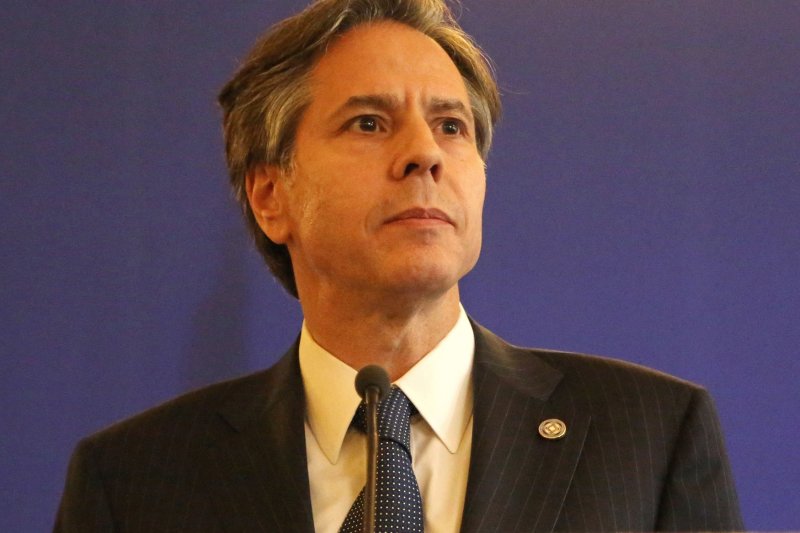U.S. Deputy Secretary of State Antony Blinken said in Tokyo on Thursday the United States would not accept North Korea as a nuclear state. Photo by David Silpa/UPI |
License Photo
TOKYO, Oct. 27 (UPI) -- The United States, South Korea and Japan agreed to exert pressure on North Korea so Pyongyang would have no other choice but to give up its nuclear weapons.
U.S. Deputy Secretary of State Antony Blinken; Lim Sung-nam, South Korea's first vice minister of foreign affairs; and Japan's Vice Foreign Minister Shinsuke Sugiyama agreed to work for stronger sanctions at the United Nations Security Council during the fifth trilateral diplomatic meeting held in Tokyo on Thursday.
"We discussed practical measures we can take to increase costs on North Korea" until it complies, Blinken said, according to Kyodo. "We will not accept North Korea as a nuclear state and we will not accept North Korea's possession of nuclear weapons."
Lim said the three sides agreed to consolidate an international community response to North Korea's provocations, South Korean news service News 1 reported.
Blinken also reassured Seoul and Tokyo the U.S. policy of extended deterrence based on nuclear and conventional defense capability would defend allies, according to the press report.
There was separate progress on implementing intelligence sharing between South Korea and Japan.
The agreement known as Japan-Korea GSOMIA collapsed in 2012 due to its unpopularity in South Korea, but Seoul is showing renewed interest.
Due to a developing political scandal in South Korea and the upcoming South Korean presidential elections, however, GSOMIA finalization is likely to be postponed, Japanese newspaper Asahi Shimbun reported.
But South Korea's defense ministry said the agreement could be reached as early as the end of 2016, according to South Korean news service Newsis.
At the meeting in Tokyo, Lim and Sugiyama also said talks on GSOMIA could be pursued in the near future.
The three countries came under criticism on Thursday from China's defense ministry.
Ministry spokesman Wu Qian said the increased militarization of the Korean peninsula does not help maintain regional peace and stability in reference to a trilateral anti-missile exercise held in Hawaii in June, according to Yonhap.















